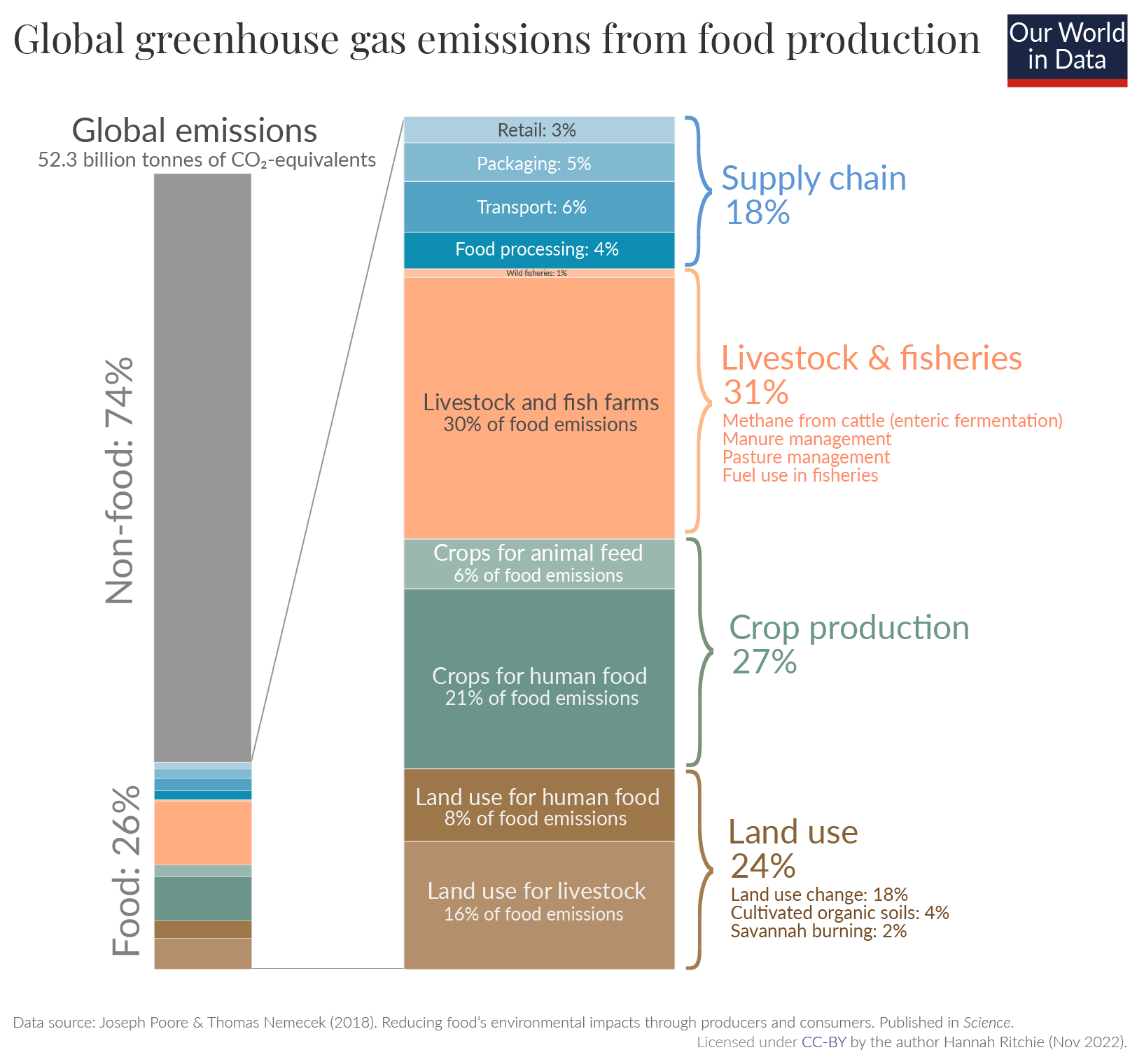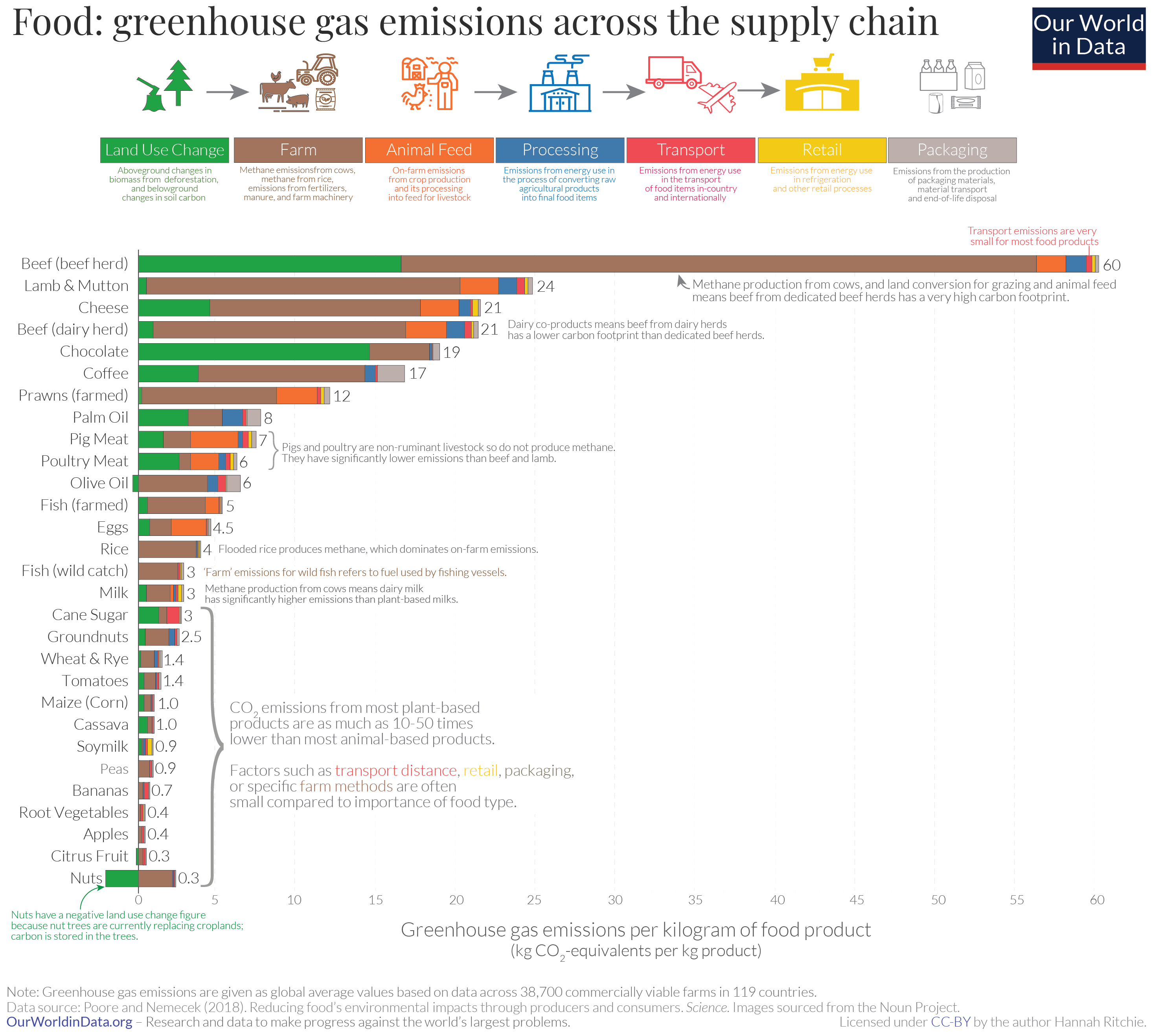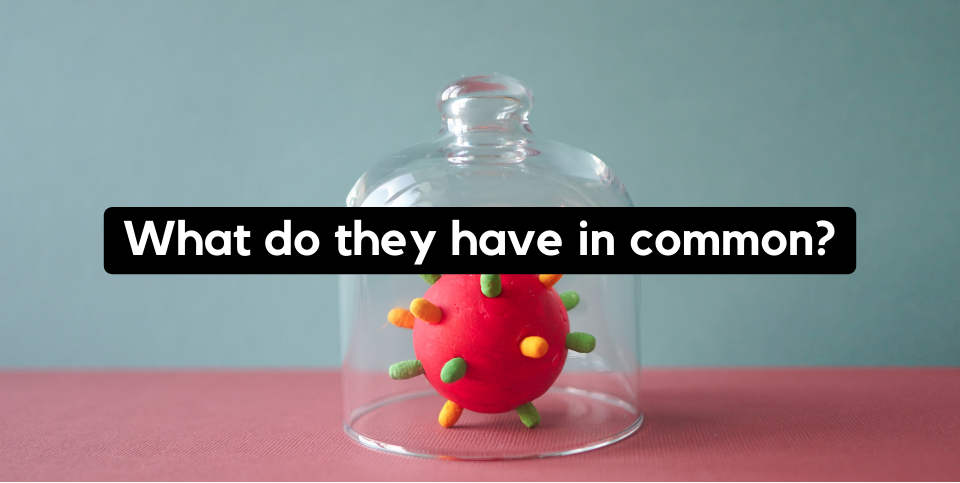Pandemic, Food and Climate Change
Let’s talk about the link between the COVID-19 pandemic, food, and climate change, because hardly anyone seems to. COVID-19 is a type of coronavirus. A coronavirus is a zoonotic disease, meaning it can transmit from non-human animals to humans as a result of mutations. Mutations occur more often when animals are in close contact with each other - like in factory farms and live animal (wet) markets.
COVID-19 isn’t the first coronavirus pandemic we’ve experienced, and it won’t be the last.
We’ve known about coronaviruses since the 1960’s, and in the last 20 years, we’ve had COVID-19, MERS, swine flu, bird flu, SARS, and others. Right now, we’re blaming wet markets, but the conditions of factory farms are largely the same. Animals are crammed together in tight spaces, sharing their breath, blood and excrement. Keeping animals in such close proximity for prolonged periods of time gives coronaviruses more opportunities to mutate, as they pass quickly from non-human host to non-human host, eventually adapting to cell receptors in human hosts. By continuing to buy animal products produced in factory-like conditions, we are increasing the risk of zoonotic disease mutation and transmission, and increasing the risk of future pandemics (National Observer, 2019).
So what is the link with climate change?
Factory farms produce most of the meat we currently eat. In the US, 99% of farmed animals live in factory farms (Sentience Institute, 2019). Meat production has exponentially increased, as we now produce four times more meat than in 1961 (Our World in Data, 2019). Food emissions currently make up around 25% of our global greenhouse gas emissions, and animal agriculture is one of the biggest culprits (Our World in Dara, 2019). Of that 25%, animal agriculture is responsible for 53% of emissions, not including supply chain emissions. This is due to the digestive systems of ruminant animals and the volume of resources they need to stay alive. Considering these numbers, decreasing our consumption of animal products is vital to reduce greenhouse gas emissions in our fight against the climate crisis.
Below is data from the largest meta-analysis of global food systems to date (Poore and Nemecek, 2018). We love these graphs, as you might’ve seen these if you’ve browsed through our other blog posts.
 Figure 1: https://ourworldindata.org/food-ghg-emissions
Figure 1: https://ourworldindata.org/food-ghg-emissions
 Figure 2: https://ourworldindata.org/food-choice-vs-eating-local
Figure 2: https://ourworldindata.org/food-choice-vs-eating-local
Making better food choices to prevent the next pandemic and contain the climate crisis. Clearly, the existence and impact of pandemics on our lives until now hasn’t been enough for us to shift our food choices in the long-term. Previous zoonotic viruses, including COVID-19, showed decreases in meat consumption for a short period of time following the spread of the viruses, but this never stuck (Attwood and Hajat, 2020). Factory farms, wet markets, or other breeding grounds for transmission of zoonotic diseases, are a huge part of the modern animal agriculture industry, and there have been few attempts to ban them or close them down. China tried to ban wet markets after SARS, but the ban was lifted 6 months later. In the same vein, we’ve known about the emissions impact of animal products for some time, and only recently have people started decreasing their consumption of animal products for this reason.
The human population is actively contributing and artificially inflating the risk of future pandemics and a worsening climate. There are many factors and forces at play here, but at its core, animal agriculture is a demand-driven industry fed by societal and cultural norms. Currently, our demand is so high that production can’t keep up without factory-like conditions. The industry produces what we are willing to pay for, that is why what we choose to buy and eat matters. Decreasing our consumption of meat will lead to a decrease in meat production, less factory farms, and less breeding grounds for zoonotic diseases as well as less emissions.
Whether we eat meat from factory farms or wet markets, the conclusion is the same: if we want to avoid future pandemics and curb the climate crisis, we have to stop buying and eating meat produced at our current rate and in these conditions.
At Lighter Foodprint, we believe that there is a lack of awareness on these issues, and we are trying to change that. Our food choices matter when it comes to reducing the risk of future pandemics, a worsening climate, and for a myriad of other reasons too: the plight of animals, labour rights, farmer’s livelihoods, soil health, deforestation, and the list goes on. We urge you to consider your food choices wisely, and to explore other sources of protein. Of course, not everyone is able to abstain from consumption of factory-produced animal products. But if you’re reading this, you probably can, and there are plenty of resources out there to help you transition. We understand that changing ingrained habits can be challenging, but a little goes a long way. You can start with meatless Mondays, buying animal products from small, local farms where animals aren’t kept in cramped conditions (although this is hard to find), substituting your meat protein for plant protein, or choosing meals with a ‘low’ carbon impact when you see our labels (coming soon!).
The COVID-19 pandemic has been devastating for all of us, and the climate crisis has already started. If we continue on as we are, another pandemic and devastating climate impacts aren’t a question of if, but when. We hope that after reading this, you’ll be inspired to consider your food choices with these risks in mind
This post was inspired by “The Two Dark Sides of COVID-19”, a chapter from Peter Singer’s “Why Vegan?”, with Paola Cavalieri.
If you like podcasts, try listening to Ep 17: The Pandemic That Could Have Been Prevented, from the Disclosure Podcast by Earthling Ed.
Articles:
